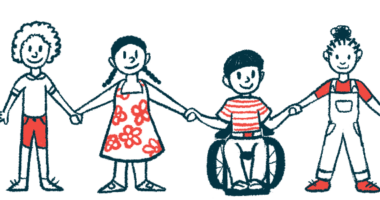How I’ve learned to embrace the highs and lows of caregiving
There's more to living with Duchenne than doctors prepared me for

In the past few weeks, as I’ve sat down at my laptop to write my columns, I’ve often wondered if readers think I’m crazy. One week my columns are full of positivity and gratitude for the things I’ve learned, and the next week they’re full of my fears, frustrations, and anxieties.
The more I think about it, the more I realize that caregivers, especially parent caregivers, experience highs and lows in response to the health and happiness of their children. That happens to me with three of my sons — Max, 19, Rowen, 15, and Charlie, 13 — who live with Duchenne muscular dystrophy (DMD).
I’ll never forget the way I learned that Max had DMD. Very candidly, in a brightly lit but crowded examination room, a doctor told me that Max would need a wheelchair before he turned 12 and help with all his daily living activities before finishing high school; then he’d be dependent on me until he died in his early 20s. The doctor recommended that I take my then-4-year-old son home and love him like there were no other option. There was no glimpse of hope or assurance that Max’s life could be good.
I was crushed by Max’s diagnosis. That was the day I experienced the first of my lowest emotions as a caregiver. I cried throughout the entire two-and-a-half-hour drive home. That evening, I held a sleeping Max close to me and cried more. It took close to two years for me to recover from that diagnosis, especially since Rowen’s and Charlie’s diagnoses followed within months, adding to my anguish. (My other four children don’t have DMD.)
Responding to life with Duchenne
That day, I learned that Duchenne was part of my life and would be the source of my most challenging experiences. However, those experiences are part of the foundation that allows me a caregiver’s most joyful emotions. Every time one of my children, or a child from the Duchenne community, defies the grim reality that first doctor outlined for us, I celebrate!
We celebrated the day my three sons with DMD enrolled in their first clinical trial. When Max turned 13 and was still walking, we celebrated. Max, Rowen, and Charlie taught me that limitations should never be the measure of their lives and that my expectations for them shouldn’t be limited, either.
In the fourth grade, Max wanted to be a crossing guard at his school, walking peers safely across the street. He nailed it!
When Rowen turned 9 and wanted his birthday party at a trampoline park, we did it — and it was one of the best birthday parties ever.
When Charlie wanted to be a catcher on his youth baseball team, we said, “Go for it.”
Whenever my sons wanted to try something, we decided we’d rather live and learn than never try and regret it. That’s paid off. We learned that life with Duchenne isn’t fair, but we could write our own rules. Our experience may not be typical, but it sure feels right to us.
Max continued walking until he was 17, graduated high school, and is now a college freshman living on campus. We celebrate every one of those achievements, as we do for Rowen’s and Charlie’s successes. This winter, Rowen is doing play-by-play analysis online for high school basketball games, and Charlie is active in the middle school band, bursting at the seams with excitement about attending high school next fall.
My family has learned to see every day as a gift, but that wisdom has come at a high price. I know how delicate life is and how fragile Duchenne has made these three teenagers. I’m scared easily. If one of these boys falls or gets a cold, I hold my breath, knowing that for them, these everyday occurrences could be deadly or life-altering. Every decision we make about doctors, therapies, and medications carries the weight of their well-being. It’s a heavy weight to carry.
Duchenne’s path is difficult; there’s no denying that. But fortunately, the pendulum swings. Life doesn’t have to be easy or hard, good or bad, one or the other. It’s both, and if we’re lucky, we have a little more of the good stuff. I’m thankful that life with my sons who have DMD has been more than I ever thought possible.
Note: Muscular Dystrophy News Today is strictly a news and information website about the disease. It does not provide medical advice, diagnosis, or treatment. This content is not intended to be a substitute for professional medical advice, diagnosis, or treatment. Always seek the advice of your physician or another qualified health provider with any questions you may have regarding a medical condition. Never disregard professional medical advice or delay in seeking it because of something you have read on this website. The opinions expressed in this column are not those of Muscular Dystrophy News Today or its parent company, Bionews, and are intended to spark discussion about issues pertaining to muscular dystrophy.








Leave a comment
Fill in the required fields to post. Your email address will not be published.